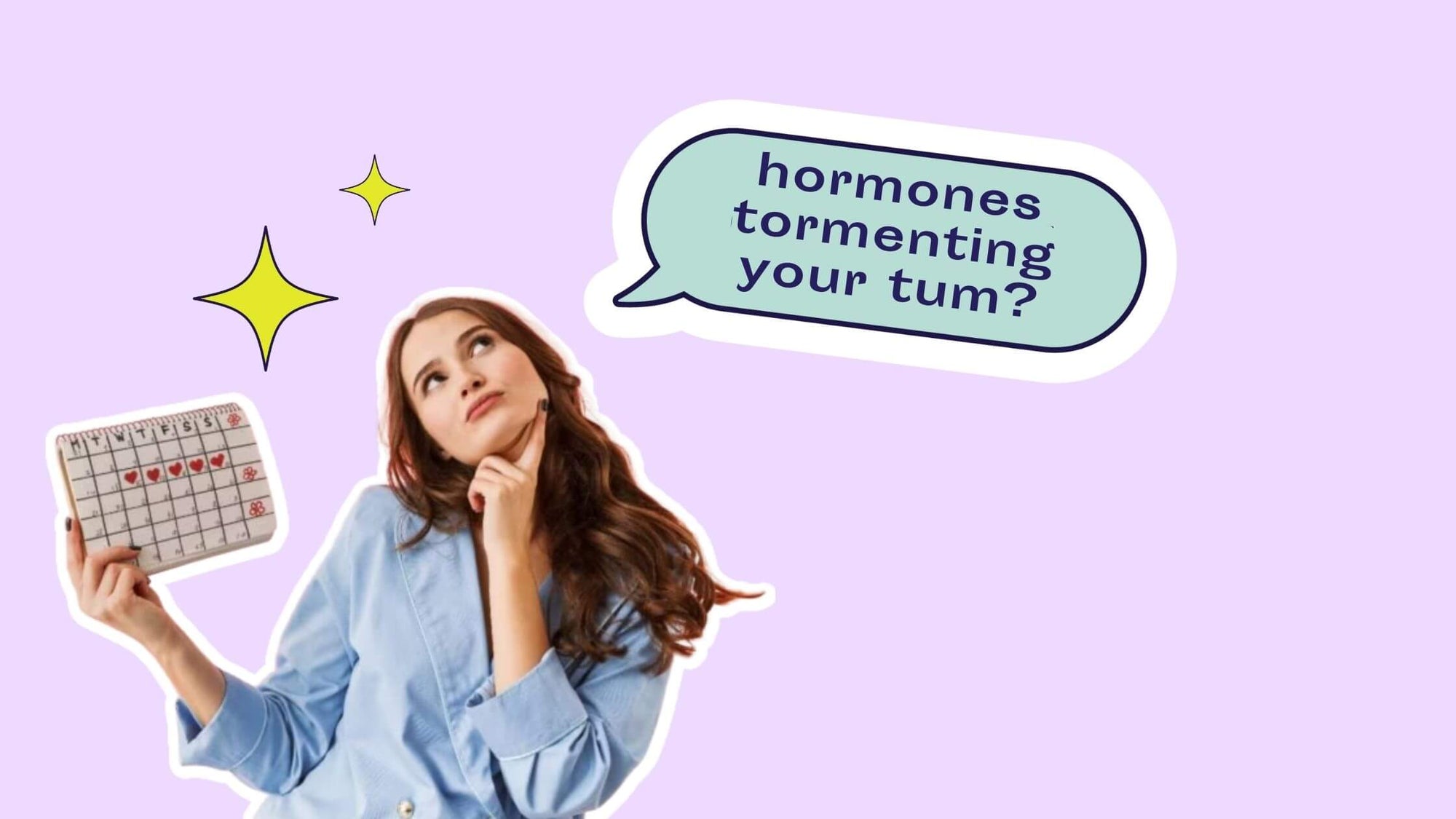Why Do I Get Constipated On Holiday?
Experiencing constipation on holidays is a nuisance. It can dampen your spirits, make your trip less enjoyable, and leave you feeling sluggish.
Holiday constipation is a relatively common occurrence, but that doesn’t mean you need to put up with it! You can take plenty of steps to minimise constipation and make your time away from home as leisurely and relaxing as possible.
So many different things can impact the regularity of your bowel movements, leading to excessive bloating and constipation on holiday. In this article, we will discuss the many culprits of holiday-related digestive issues and how you can minimise constipation to fully enjoy your trip (and enjoy all the delicious foods available!).
Before we delve into these things, let’s quickly cover what constipation is and why it occurs.
What is Constipation?
Constipation is a common digestive problem that affects around 16 in every 100 people. It is accompanied by a range of symptoms, including bloating, excess gas, burping, and abdominal pains.
Constipation may be defined as:
- Having less than three bowel movements a week
- Passing hard, dry, or lumpy stools
- Finding it difficult to pass stools
- A feeling that not all stool has passed when you’ve been to the toilet
- Straining or getting severe pain when having a bowel movement
In some cases, constipation and excessive bloating can lead to additional symptoms, such as loss of appetite, nausea, and rectal bleeding.
Constipation can affect anybody at any time. However, the risk of constipation seems to increase when people travel away from home, and this is the case for many reasons that we will discuss later in the article.
Why Does Constipation Happen?
Constipation occurs when your digestion slows down, causing partially digested food to sit in your colon for longer than normal. The slow movement of the stool through your digestive tract causes it to harden and become a lot harder (and more painful) to pass.
Some people naturally go to the toilet less than others. However, if you usually have a daily bowel movement and suddenly find that your regularity decreases to just one toilet trip every few days, this could indicate that there is an underlying problem at hand.
Here are some of the most common reasons why people get constipated, split into acute (short-term) and chronic (long-term).
Causes of short-term constipation:
- Changes in your diet, especially if these changes involve the removal of fibre-rich foods and the introduction of ultra-processed foods that are packed full of fats and sugars.
- Changes in meal frequency, which may be due to having a jam-packed work schedule, social events, travel, or illnesses.
- Stress or anxiety, both of which can direct blood flow away from the gut to the muscles, causing food to slow down when moving through the digestive tract, and leading to bloating and constipation.
- Hormonal changes, such as monthly fluctuations in oestrogen and progesterone, that menstruating women experience.
- Medications that are known to slow down digestive processes including diuretics, anti-hypertensives, sedatives, opioids, and antidepressant medications.
- Surgical procedures where anaesthesia has been used.
- Labour (childbirth), especially if you have been given an epidural injection or strong pain-relieving medications during the process.
Although all of these things cause short-term constipation, you might find that your digestive discomforts continue for several weeks after the original cause has resolved. In this case, you’re dealing with chronic constipation.
There is a range of other things (usually underlying digestive diseases) that lead to chronic digestive disturbances, and they may start to negatively impact your quality of life and mental health after a while.
Chronic constipation can be caused by:
- Irritable bowel syndrome (IBS)
- Irritable bowel disease (IBD, aka ulcerative colitis and Crohn’s disease)
- Food sensitivities and allergies (such as lactose intolerance)
- Diverticulitis
- Acid reflux (gastroesophageal reflux disease (GORD))
- Blockages in the lower part of the digestive tract (the colon or rectum)
- Cancers in the digestive tract
- Problems with the thyroid (the gland that regulates metabolism)
- Poor muscular strength in the pelvic floor or digestive tract
- Anal fissure (tears in the skin around the anus)
- Parkinson’s disease
- Spinal cord injuries
- Stroke
When Does Constipation Get Worse on Holiday?
Even if you’re somebody who rarely experiences constipation, don’t be surprised if you find yourself feeling bloated and unable to go to the toilet while you’re away! Holiday constipation doesn’t discriminate, and it can impact everybody.
The question is, why are people more prone to experiencing constipation while away on holiday? Let’s take a deep dive into this question to help you get to the bottom of your digestive discomfort. Note that you might be experiencing constipation for just one or a combination of several of the things below.
1. Reduced physical activity
When you’re on holiday, you might be moving around a lot less than normal. If you’re enjoying a beach holiday, you might barely reach a few thousand steps a day because you’re relaxing in the sun instead.
While there’s absolutely nothing wrong with relaxing, and it’s something that we all need to do every once in a while, this decrease in movement can slow things down in your digestive system (causing delayed gastric emptying). This can eventually lead to bloating and constipation.
2. Lack of dietary fibre
Traditionally, healthy diets go out of the window on holiday too. You might have been tucking into indulgent treats and skipping the healthy carbs, fruits, and veggies at the all-inclusive hotel buffet.
If you usually pack your plate with fibre-rich veggies and enjoy daily toilet trips, your digestive system might react poorly to a reduction in your fibre intake when you’re on holiday. Consuming foods that are low-fibre but high in saturated fats, simple sugars, and salt can disturb your usual digestive processes and cause discomfort.
3. Dehydration
Water is essential for healthy digestion as it helps to soften the stool and allow it to pass easily. It’s easy to forget about drinking water when you’re on holiday, especially if you’re busy exploring or relaxing with your loved ones.
Plus, you’re more prone to dehydration if you’re drinking a lot of alcohol or coffee while you’re away. Alcohol and caffeine are diuretics that make you need a wee more often, causing you to get dehydrated if you don’t replace this lost water.
Add onto this the fact that you’ll be sweating more if you’re in a hot, humid country, and it’s no wonder why it’s so easy to get dehydrated and constipated.
4. Different environment
Sometimes, something as simple as being in a new and unfamiliar environment can cause your digestive to get out of whack. In fact, a change in routine and environment is one of the key reasons why people feel constipated when they’re travelling.
The digestive system enjoys regularity and if something in your usual routine changes, it’s going to notice! The gut is often referred to as the ‘second brain’ because it interacts with the actual brain all the time via the vagus nerve, so it’s easy to see why there is such a close connection here.
5. Travel-related stress
Let’s face it – travelling can be stressful. You might be looking forward to chilling on the beach with your friends or enjoying deliciously indulgent meals with your family, but travelling to and from different countries and destinations can take a toll on your body (even if you don’t realise it).
Physical and mental stress can disrupt digestive processes, leading to negative symptoms like constipation, bloating, excess gas, and abdominal cramps. This can be especially true for long-haul travelling over me zones.
6. How Long Does Holiday Bloating Last?
Sadly, we can’t provide a solid answer for you here. Holiday bloating can last anywhere from a few hours to a few days to the whole time you’re away from home.
The best way to minimise the extent of your bloating is to prevent it from happening in the first place. We’ve covered some top tips to relieve holiday constipation below, so make sure to read on!
For most people, holiday bloating resolves a couple of hours after eating a huge meal or drinking a lot of alcohol. However, it largely depends on that person’s individual physiology, digestive health, and medical status. If they’re prone to digestive issues or have one of the chronic conditions that we mentioned above, they might experience worsening bloating and constipation across several days while on holiday.
It’s important to note that if you’re getting severe digestive symptoms that don’t seem to resolve after a week or are associated with other concerning symptoms, you must consult a healthcare professional as soon as possible. They will be able to guide you appropriately to prevent further complications.
How to Stop Holiday Constipation
Here are some top tips for naturally relieving holiday constipation so you can enjoy every second of your trip and indulge in all of your favourite treats without worry.
1. Take digestive enzymes
The human body naturally produces digestive enzymes, and there are lots of different kinds. However, there are various medical conditions that lead to a digestive enzyme deficiency in the body. In this case, digestive enzyme supplements can be helpful.
But supplementation isn’t just for those with digestive disorders. They’re suitable for most people, and they can be a highly effective way of minimising bloating and constipation while on holiday.
Digestive enzyme supplements mimic your body’s natural digestive enzymes to aid the breakdown and absorption of ingested food. As a result, food moves nicely through your digestive tract, improving toilet regularity and keeping you comfortable.
Consider taking a daily digestive enzyme supplement to prevent bloating and constipation before they have a chance to rest their ugly heads and ruin your holiday.
2. Supplement with probiotics
Probiotics are live bacteria that are beneficial for your gut. You have probiotic bacteria already residing in your gut as you’re reading this but taking a supplement can aid your existing gut bugs and make sure the potentially harmful bugs don’t get out of control.
You can consume probiotics in foods like yoghurt, sauerkraut, tempeh, tofu, and kefir. However, if you’re unable to consume these foods while you’re on holiday or you want to support your gut even further, you can take a probiotic supplement.
Make sure that your probiotic supplement contains more than one billion live bacteria, as this is the minimum recommended amount for effectiveness. If you want to take digestive enzymes and probiotics together, our A Dose For Bloating supplement has got you covered!
3. Keep moving
Exercise is one of the best lifestyle changes to tackle bloating and constipation. Simply moving your body (especially after meals) can encourage food to move at a steady pace through your digestive tract, preventing any nasty symptoms.
Admittedly, it can be difficult to maintain a regular exercise routine when you’re on holiday. However, even just a quick post-lunch walk around the block or a gentle stroll down the beach after dinner can do the trick to keep constipation at bay.
4. Consume fibre-rich foods
High-fibre foods aren’t as easy to come by when you’re at an all-inclusive holiday resort, and they’re not always your first choice when you’re dining out. However, fibre-rich foods are key to great digestive health. Without fibre in your diet, your gut bugs can become unbalanced, and your risk of constipation and digestive issues increases.
High-fibre foods include whole grains, fresh fruits, dried fruits, vegetables, beans, legumes, nuts, seeds, and avocados. Wherever possible, add these foods to your diet while you’re away, and you should find that bloating reduces quickly, and you can avoid constipation.








